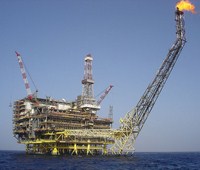The International Energy Agency, an organization comprising 28 industrialized countries belonging to the Organization for Economic Cooperation and Development (OECD) aimed among other things at preserving global energy security, is reportedly seeking to expand energy cooperation with emerging powers. In an email interview, Thijs Van de Graaf, a postdoctoral fellow at the Ghent Institute for International Studies specializing in global energy politics and international institutions, explained the IEA’s expansion drive and its likely effects.
WPR: What is motivating the IEA's push to form an "association" with emerging economies for the first time in its 40-year history?
Van de Graaf: When the IEA was created in 1974, its member states accounted for the bulk of the oil consumed worldwide. This year, for the first time, emerging economies will consume more oil than the high-income countries. China even briefly surpassed the U.S. in December as the world’s chief oil importer and is set to overtake it again. This is part of a long-term trend whereby the center of gravity in world energy markets is gradually shifting toward the East. According to projections by the IEA itself, all of the projected increase in the demand for oil in the coming 25 years will come from non-OECD countries; oil demand in the OECD will even regress slightly. The members of the IEA now realize that the agency can no longer play the global role its name implies if it does not find appropriate ways to accommodate those rising, energy-thirsty powers.

